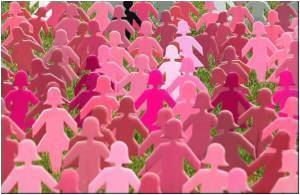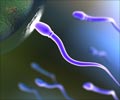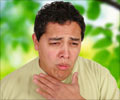
In a landmark report, the World Health Organisation suggested a ban might be needed to protect future generations.
It said that it is "reasonable to suspect" chemical substances called phthalates of harming female fertility and linked them with rising rates of childhood illnesses including leukaemia.
Also under suspicion is bisphenol A, which is found in a host of daily items including tin cans and sunglasses.
The man-made compounds are thought to interfere with the natural hormones that are key to our growth, development and overall health.
The WHO said that there was "very strong evidence" in animals they can interfere with thyroid hormones - something that can cause brain damage, stunted intelligence, attention deficit hyperactivity disorder and autism.
Advertisement
And there was some evidence linking exposure in pregnancy to weight gain in infants and children and potential links to breast cancer.
Advertisement
Declaring the chemicals a global threat, the new report's authors said humans and animals were exposed to hundreds of compounds, many of which have yet to be identified or properly studied.
Some are inhaled in dust, others make their way into our bodies from food or simply licking our fingers.
The WHO stops short of saying that the chemicals actually caused the illnesses but did say that in some cases, the evidence was very strong.
The report - State of the Science of Endocrine-Disrupting Chemicals - is the most comprehensive of its kind because rather than focusing on one chemical or one illness, it evaluates all the evidence.
Worryingly, it warns the chemicals assessed so far by scientists may only be the 'tip of the iceberg' - and there could be many other potentially harmful compounds out there.
It cautions that the key role of hormones in the development of tissues and organs means that unborn babies and young children may be particularly vulnerable.
The WHO said that wildlife is also at risk and calls for much more research into the chemicals and their effects - and said that there may be a case for banning or restricting them.
Source-ANI















